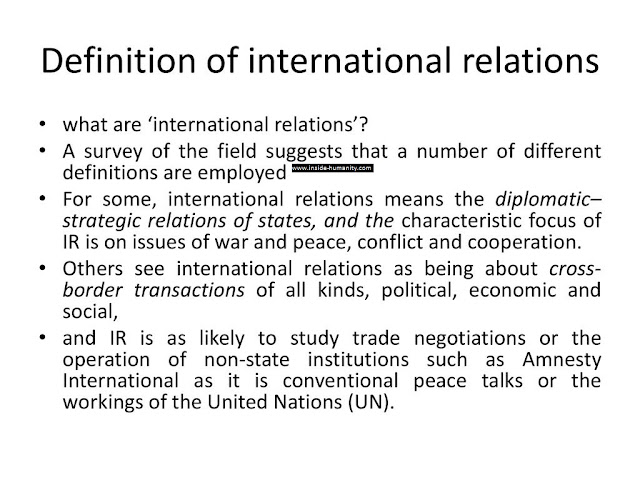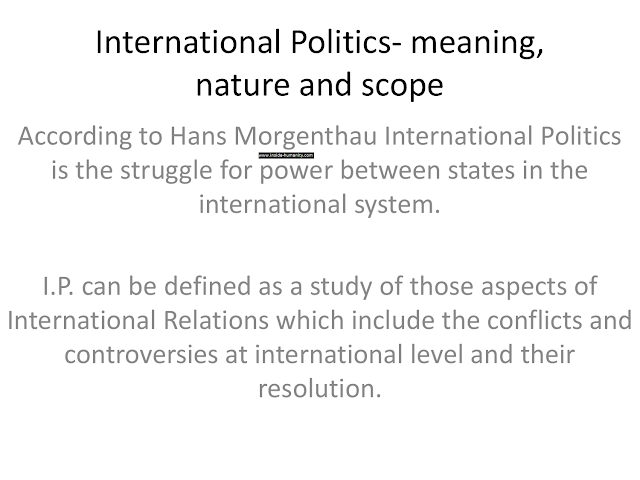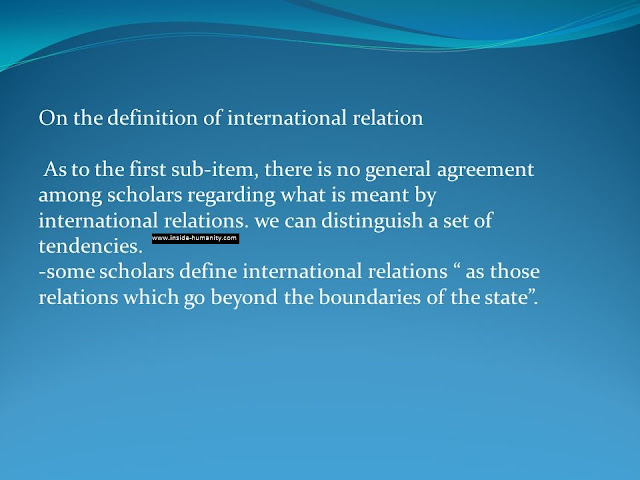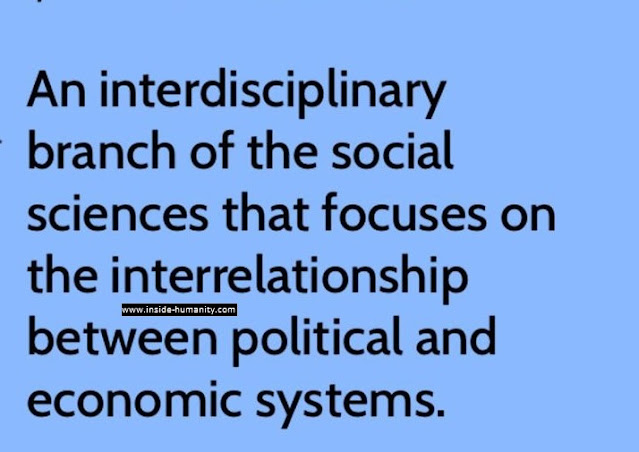Definition Of International Relations
International relations refers to the study of relationships and interactions between different countries and international organizations. It encompasses a wide range of topics, including diplomacy, international security, trade, human rights, and global governance. International relations has been a crucial field of study since the early 20th century, and continues to be of utmost importance in an increasingly interconnected world.
Theories of International Relations
International relations can be studied through various theories and perspectives. Realism, liberalism, constructivism, Marxism, and feminism are some of the most well-known theoretical frameworks in the field.
Realism is a power-based perspective that assumes that states are the primary actors in international relations and that their behavior is driven by self-interest and the pursuit of power. Realists believe that conflict is inevitable in international relations and that states must always be prepared to defend themselves.
Liberalism
In contrast to realism, liberalism emphasizes cooperation and international institutions as key factors in shaping international relations. Liberals believe that states can cooperate to achieve mutual gains and that international organizations can help reduce conflict and promote peace.
Constructivism is a theoretical perspective that focuses on the role of ideas, norms, and values in shaping international relations. It argues that the rules, norms, and institutions that govern international relations are constructed through interaction and negotiation among states and other actors.
Marxism is a materialist perspective that views international relations as a struggle between capitalists and workers. Marxists believe that the root cause of conflict in international relations is economic, and that the interests of capitalists and workers are fundamentally opposed.
Feminism is a perspective that emphasizes the role of gender in shaping international relations. Feminist scholars argue that traditional international relations theories have ignored the experiences and perspectives of women and that gender should be an important factor in understanding and analyzing international relations.
International Security
International security refers to the measures that states and international organizations take to ensure the safety and stability of the international system. It encompasses a wide range of issues, including war, terrorism, arms control, and human security.
War and conflict remain major threats to international security. While the number of wars has declined in recent decades, the nature of war has changed, and new threats, such as terrorism and cyberwarfare, have emerged.
Terrorism is the use of violence and intimidation by non-state actors to achieve political goals. It is a major threat to international security, and has become increasingly global in scope.
Arms control refers to the efforts to limit the spread and use of weapons, particularly weapons of mass destruction. Arms control agreements and disarmament treaties are key tools for promoting international security.
Human Security
Human security is a broader concept that encompasses both traditional security concerns, such as war and terrorism, and non-traditional security threats, such as poverty, disease, and environmental degradation. It emphasizes the importance of protecting individuals and communities, rather than just states.
International trade refers to the exchange of goods, services, and capital between countries. It plays a crucial role in shaping the global economy and promoting growth and development.
The World Trade Organization
The World Trade Organization (WTO) is the primary international organization responsible for promoting and regulating international trade. It sets the rules for international trade and settles disputes between member countries.
Diplomacy is the process of negotiating and managing relationships between states and other actors in international relations. International organizations play a crucial role in diplomacy, providing forums for negotiation, cooperation, and conflict resolution.
The Assembled Countries (UN) is the biggest and most notable worldwide association. It was established in 1945 with the aim of promoting peace and security, protecting human rights, and promoting economic and social development.
Regional organizations, such as the European Union (EU), the African Union (AU), and the Association of Southeast Asian Nations (ASEAN), play a crucial role in promoting cooperation and stability within their respective regions.
Human Rights
Human rights are universal and inalienable rights that are inherent to all human beings, regardless of their nationality, religion, or other status. The protection and promotion of human rights is a key concern of international relations.
The Universal Declaration of Human Rights is a landmark document that sets out the basic rights and freedoms that are considered to be the minimum standards for human dignity and well-being. It was embraced by the UN General Gathering in 1948.
Despite the existence of international human rights norms and institutions, human rights violations continue to occur around the world. Issues such as torture, arbitrary detention, and discrimination are of particular concern.
Global governance refers to the ways in which the international community manages and regulates global affairs, including economic, social, and environmental issues. It involves the participation of a range of actors, including states, international organizations, and non-state actors.
International institutions play a crucial role in global governance, providing forums for cooperation and decision-making, and setting standards and norms. Examples of such institutions include the World Bank, the International Monetary Fund (IMF), and the World Health Organization (WHO).
Non-State Actors in Global Governance
Non-state actors, such as civil society organizations, corporations, and transnational networks, are increasingly playing a role in global governance. They participate in international decision-making processes, advocate for their interests and values, and hold states and international organizations accountable.
Climate change and environmental degradation are increasingly significant issues in international relations. The effects of these issues are global in scope, and require international cooperation and action to address.
The Paris Agreement is a landmark international treaty on climate change that was adopted by the UN in 2015. It sets a goal of limiting global temperature rise to well below 2°C above pre-industrial levels and pursuing efforts to limit it to 1.5°C.
International institutions play a crucial role in addressing environmental issues, setting standards and norms, and facilitating cooperation and action. The UN Framework Convention on Climate Change and the Convention on Biological Diversity are two key international treaties in this area.
Conclusion
International relations is a vast and complex field that encompasses a wide range of issues, perspectives, and actors. From security and trade to human rights and global governance, the study of international relations provides a crucial understanding of the world and the challenges and opportunities it presents. The field continues to evolve in response to new developments and trends, and its importance will only continue to grow in an increasingly interconnected world.










0 Comments
Thank you. We'll reply you shortly.